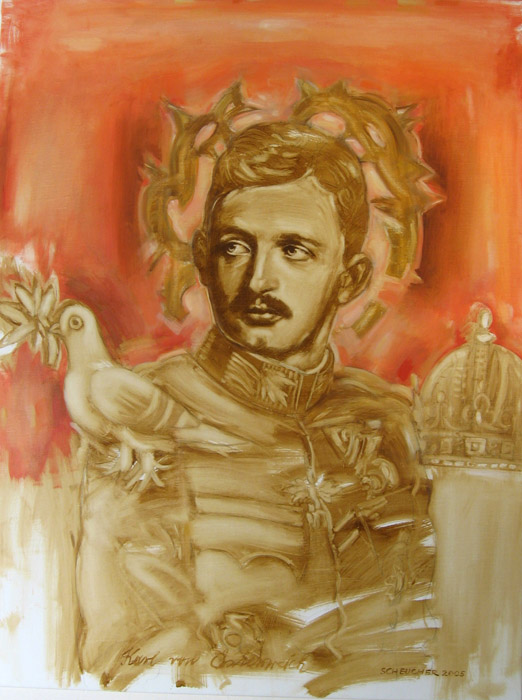Celebrating Blessed Karl of Austria’s feast day on October 21
A drawing of Blessed Karl of Austria, last emperor of the Austro-Hungarian Empire
October 22, 2021
On October 21st, the Catholic Church will celebrate the feast of Blessed Karl of Austria, the last Habsburg monarch of the Austro-Hungarian Empire from 1916 to 1918. Blessed Karl was born in 1887 as the grand-nephew of then-Emperor Franz Joseph, but not directly in line for the throne. However, things changed when Rudolf, the emperor’s son, died in a suicide incident with his mistress in 1889 and then the assassination Franz Ferdinand in 1914 made Karl the heir to the throne (Franz Ferdinand’s children could not be heirs since Franz’s marriage was not to a royal). When Franz Joseph died in 1916, Karl was thrusted to the throne, all in the middle of the First World War. He ascended to the throne with his wife, Zita, as Empress.
Karl was a man of great faith who lived his family life with great love and his monarchy in service of Christ. Zita, his wife (now Servant of God Zita), was an Italian princess of the House Bourbon-Parma (a cadet of the Spanish Bourbons) for whom was the love of his life. They married on 21 October, 1911, with the goal helping each other get to Heaven, inscribing on their wedding rings “Sub tuum praesidium confugimus, sancta Dei Genitrix” (We take refuge under your protection, O Holy Mother of God), receiving the Sacrament of Matrimony in the process. He received Holy Communion and went to Confession frequently, prayed the rosary daily, and was devoted to the Blessed Virgin Mother and the Sacred Heart of Jesus. As St. Alphonsus Liguori wrote “Whoever prays is certainly saved. He who does not is certainly damned.” Blessed Karl led an active life of prayer, much in line with a good saint. His rich love of Our Lord carried over to the Sacred Heart of Jesus, to whom he consecrated himself and his family in 1918. He prayed the Veni Creator after mass in thanksgiving for the Holy Ghost (a prayer I often recite after Mass nowadays as well).
As Emperor, he was the sole wartime leader who accepted Pope Benedict XV’s points for peace, and fervently sought to end the bloodshed. As Our Lady in Fatima warned in 1917 that war is a consequence of sin, and just as she came down from Heaven to reveal her message, Blessed Karl sought to do the will of God on Earth. He knew peace was the ultimate will of God, and that as a Christian emperor, he ought to do the will of God. Though his attempts to end the war were unsuccessful, he still sought to be a good Christian emperor, doing all things in service of Christ. After the war, he renounced his role in state affairs, and in an unsuccessful attempt to regain the crown of Hungary, he and his family were exiled to Madeira, where he did not cease to practice the faith. While there, he became ill with pneumonia, was given last rites, and died in the presence of his wife and son Otto in 1922.
Blessed Karl was beatified by Pope (now Saint) John Paul II in October of 2004, and maintains devotion from Catholics such as myself. Over the summer, my parish (St. Adelaide Parish in Peabody, MA) was fortunate to obtain a relic of Blessed Karl, and now has a shrine to him, in accordance with the Emperor Karl League of Prayer. Not long after Mass one day, our priest informed us of his story in obtaining the relic and the life of Karl, and thereafter blessing us with his relic. It is quite a site to be able to walk by after Mass and even pray there before the relic.



